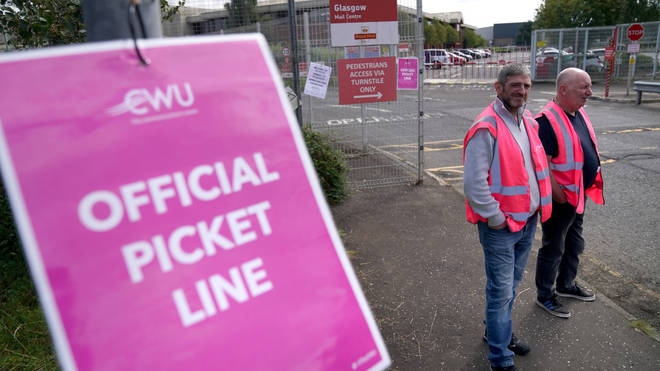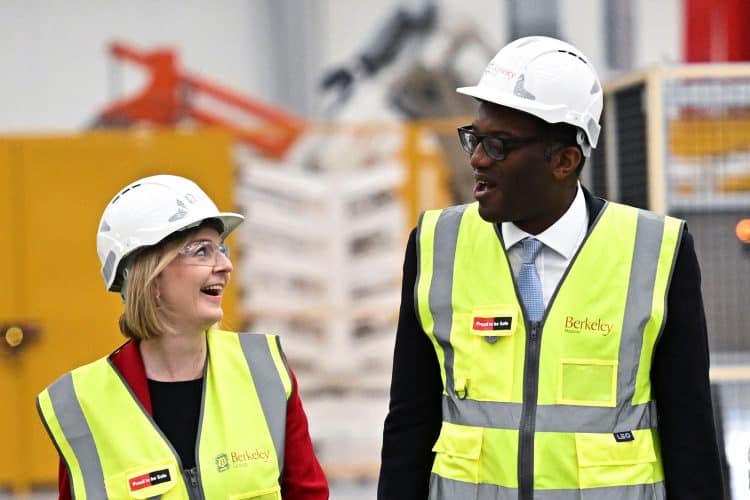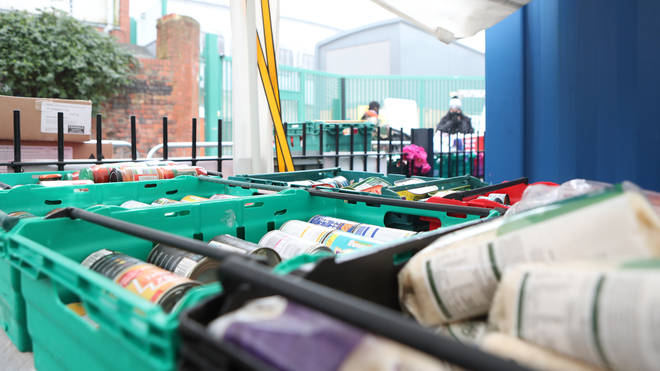Demonstration quickly broken up by Taliban police
The Associated Press · Posted: Oct 01, 2022

A group of Afghan women on Saturday protested a suicide bombing that killed or wounded dozens of students in a Shia education centre in Kabul a day earlier, demanding better security from the Taliban-run government.
The demonstration was quickly broken up by Taliban police.
The bomber struck an education centre Friday packed with hundreds of students in a Shia neighborhood, killing 19 people and wounding 27. Among the casualties were teenagers taking practice university entrance exams, a Taliban spokesman said.
The morning explosion at the centre took place in Kabul's Dashti Barchi neighborhood, an area populated mostly by ethnic Hazaras, who belong to Afghanistan's minority Shia community. The Islamic State group has carried out repeated, horrific attacks on schools, hospitals and mosques in Dashti Barchi and other Shiite areas in recent years.
About 20 protesters Saturday gathered in the Dashti Barchi area for about 45 minutes before their rally was broken up by Taliban security. They carried banners in English and Dari reading "Stop Hazar Genocide."
19 dead after blast in Kabul hits education centre
"We are asking the Taliban government, when they claim that they have brought security, how they cannot stop an attacker from entering an educational centre to target female students. In this incident, one family has lost four members, why is it still happening," said demonstrator Fatima Mohammadi.
Staff at the Kaaj education centre spent Saturday cleaning up the wreckage caused by the attack, while victims' family members searched through items covered with blood belonging to their loved ones.
No responsibility claimed for attack yet
Hussain, who goes by one name, witnessed the attack. He said he believed the death toll was significantly higher, based on the large number of bodies he saw.
"First the attacker just over there, where a huge crowd of students was standing, opened fire. At least 40 people were killed there," he said.
Zahra, a student who survived the attack, was unharmed because she went out just minutes before to buy a pen. She said she lost her friends in the attack and also her hope for a better future.
"I am not even sure if there is a future for us anymore or not," she said.
No one has yet claimed responsibility for the attack. The Islamic State group — the chief rival of the Taliban since their takeover of Afghanistan in August 2021 — has in the past targeted the Hazara community, including in Dashti Barchi, in a brutal campaign of violence.
Militants have carried out several deadly attacks in Dashti Barchi, including a horrific 2020 attack on a maternity hospital claimed by the Islamic State group that killed 24 people, including newborn babies and mothers.

Kabul attack: Death toll rises to 35 mostly ‘girls, young women’
Dozens of women have protested to call for more protection for the ethnic Hazara community in the wake of the attack.

Published On 1 Oct 2022
The death toll from a suicide bombing at an education centre in the Afghan capital has risen to 35, according to the United Nations mission to the country, as women reportedly took to the streets to protest against the targeting of the Hazara ethnic minority.
At least 82 others were wounded in Friday’s attack at the Kaj education centre in Dasht-e-Barchi, home to a large Hazara community located in western Kabul, according to the UN mission.
The toll is higher than the casualty numbers Kabul authorities have so far released.
“Majority of casualties are girls and young women,” the mission tweeted on Saturday. “All names need documenting and remembering and justice must be done.”
No group has claimed responsibility for the attack, which occurred in a women’s section of the centre where young people had gathered to take a mock university exam.
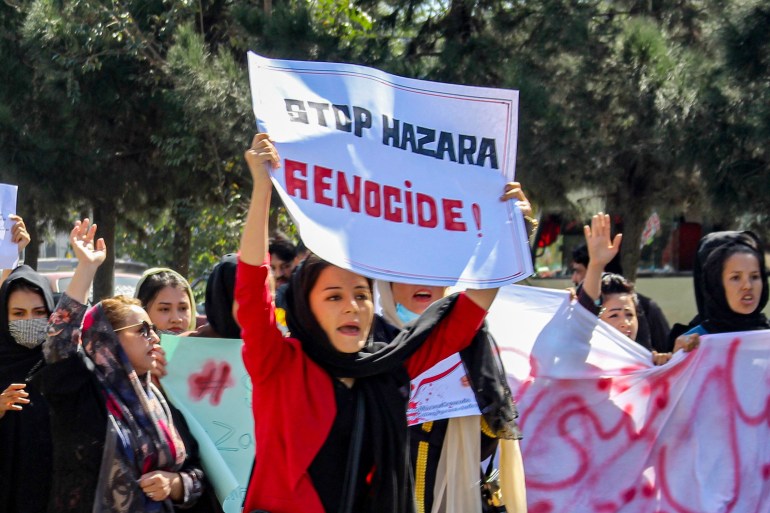
However, the local ISIL (ISIS) affiliate, a rival to the Taliban, has claimed responsibility for similar attacks on education centres in recent years, including a suicide attack on an education centre in the same neighbourhood that killed 24 in 2020.
At least 85 people were also killed in another unclaimed attack near a school in Dasht-e-Barchi in May 2021.
The Taliban, which swept to power amid a foreign troop withdrawal in August 2021, has promised to bring stability to the country after 20 years of war, but a spate of recent violence has undermined that narrative.

On Friday, the AFP news agency reported that more than 50 women defied a Taliban ban on rallies to call for an end to violence against the Hazara people, who have alleged years of persecution by the ruling Taliban while being repeatedly targeted by ISIL attacks.
The group chanted “stop Hazara genocide, it’s not a crime to be a Shia”, as they marched past a hospital in Dasht-e-Barchi where several victims of the attack were being treated, according to an AFP correspondent.
Protesters later gathered in front of the hospital and chanted slogans as dozens of heavily armed Taliban, some carrying rocket-propelled grenade launchers, kept watch, according to the news agency.
Al Jazeera however, could not independently verify the reports of protests.
Women’s protests have become increasingly risky since the Taliban came to power, with numerous demonstrators detained in past rallies or broken up by Taliban forces firing shots in the air.
Rights groups have called on the Taliban to better protect the country’s residents.
Amnesty International described Friday’s attack as a “shamefaced reminder of the inaptitude and utter failure of the Taliban, as de-facto authorities, to protect the people of Afghanistan”.
Meanwhile, the organisation’s South Asia campaigner, Samira Hamidi, said the Taliban has done little to protect ethnic minorities since taking power.
“Their actions of omission and commission have only further aggravated the risk to the lives of the people of Afghanistan especially those belonging to ethnic and minority communities,” she said in a statement on Friday.
The Norwegian Refugee Council also condemned the attack, calling on the authorities to take steps to ensure that educational facilities are protected.
“An education centre filled with youth preparing for exams should be a venue for joy, focus and excitement – never awash with blood and horror,” Neil Turner, the Norwegian Refugee Council’s country director in Afghanistan, said in a statement.
A suicide bomber attack on an education centre in western Kabul has left at least 100 people killed and injured, most of them young women.
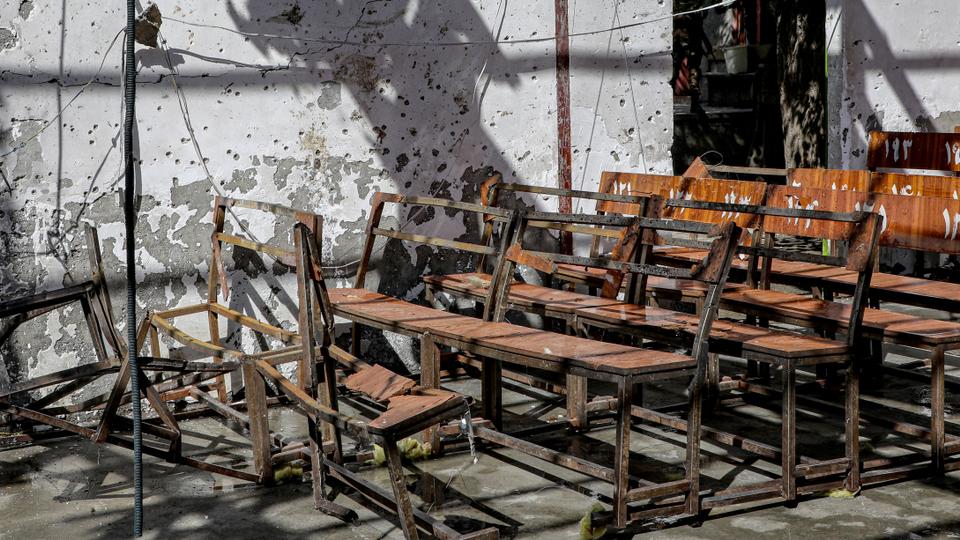
Dozens of women from Afghanistan's ethnic Hazara community protested in the capital after at least 100 people were killed and injured in a suicide bombing.
The attack happened on Friday at 0300GMT (7:30 am local time) at the Kaj educational institution in the Dasht-e-Barchi neighbourhood of western Kabul, a predominantly Shia Muslim area home to the ethnic Hazara community - the target of some of Afghanistan's most deadly attacks.
READ MORE: Deadly blast hits educational centre in Kabul's Shia neighbourhood
Police said at least 20 people were killed but the United Nations Assistance Mission in Afghanistan (UNAMA) has put the number at 35, with an additional 82 wounded.
The death toll is expected to rise, UNAMA said.
On Saturday about 50 women chanted, "Stop Hazara genocide, it's not a crime to be a Shia", as they marched past a hospital in Dasht-e-Barchi where several victims of the attack were being treated.
Dressed in black hijabs and headscarves, grieving protesters carried banners that read: "Stop killing Hazaras", an AFP correspondent reported.
They later gathered in front of the hospital and chanted slogans as dozens of heavily armed Taliban fighters kept watch.
Since the Taliban returned to power last August, women's protests have become risky, with numerous demonstrators detained and rallies broken up by Taliban forces firing shots in the air.
'Serious measures'
The bomber shot dead two security guards before entering the gender-segregated classroom, student Ali Irfani, who escaped the carnage, said.
"Not many boys were hit because they were at the rear end of the classroom. The bomber entered from the front door where girls were sitting," he said.
The Taliban's official twitter account put out a statement condemning the attack, expressing sympathy for the families of the victims, saying "Serious measures will be taken to find and punish the perpetrators".
No group has yet claimed responsibility for the blast at the education centre, however, Daesh has claimed previous attacks in the area targeting girls, schools and mosques.
The United Nations' special rapporteur on Afghanistan, Richard Bennett, condemned the attack and demanded justice.
"Onslaught on education for Hazaras & Shias must end. Stop attacks on Afghanistan's future, stop international crimes," he said on Twitter.
READ MORE: US admits to killing 12 civilians last year, all in Afghanistan
Afghanistan's Shia Hazaras have faced persecution for decades, targeted by the Taliban during their insurgency against the former US-backed government and by Daesh - both of which consider Shias heretics.
In April, two deadly bomb blasts on the same day at separate education centres in Dasht-e-Barchi killed six people and wounded at least 20 others.
Daesh has emerged as a key security challenge for the Taliban, but officials claim their forces have defeated the armed group.














